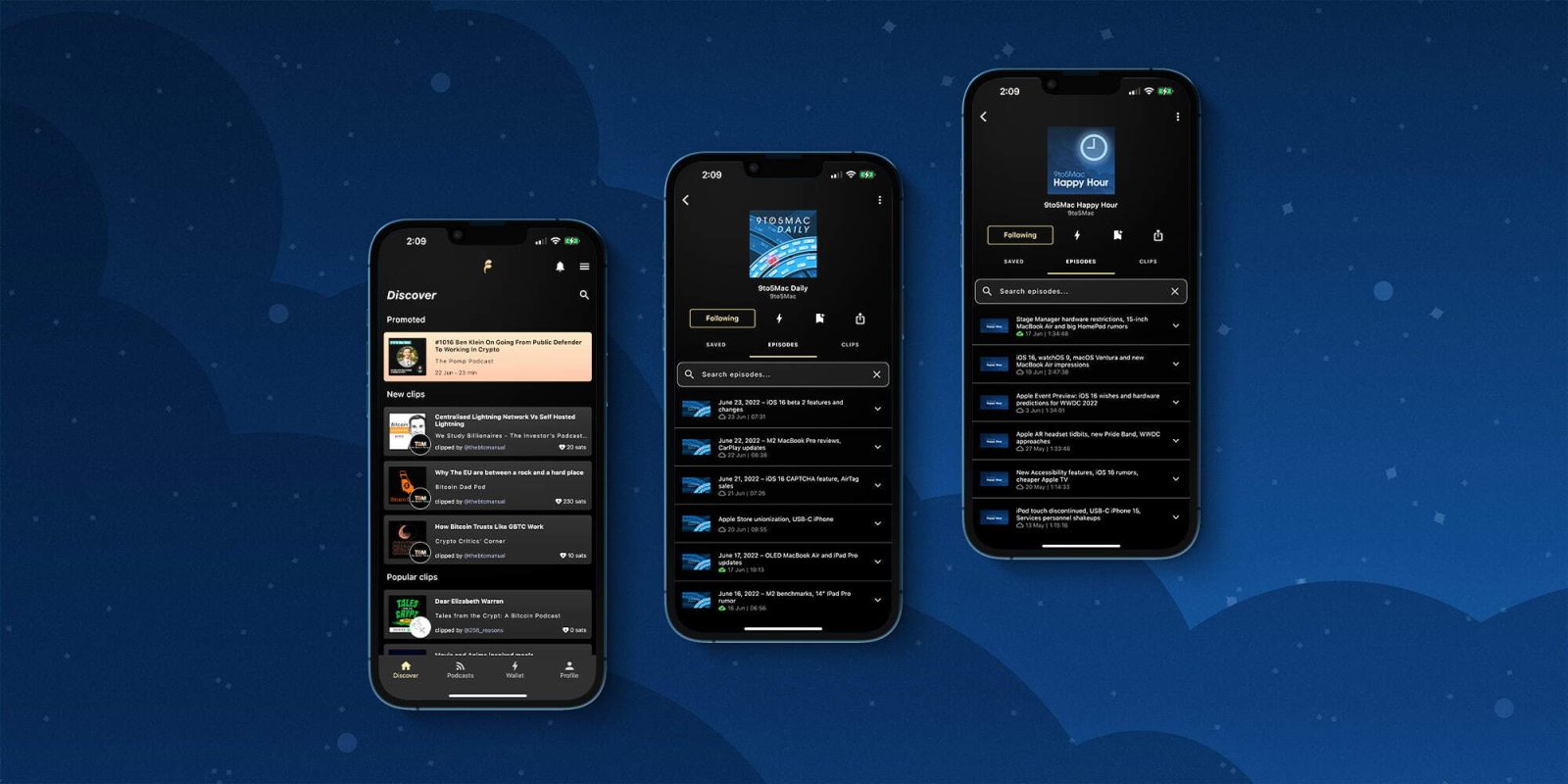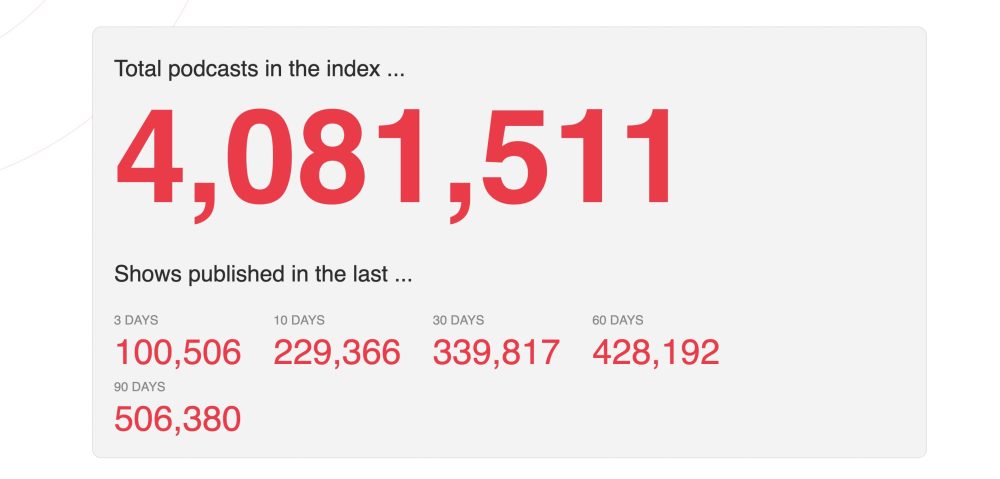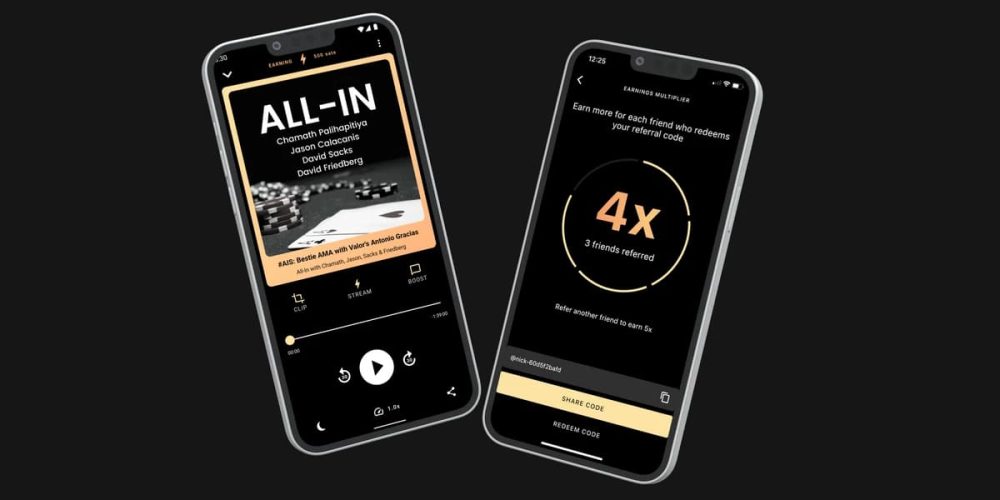
Podcasting is back. You might be wondering: Did it ever leave? Yes, it did. A true podcast is based on an open protocol (RSS) that any player can use to subscribe to any show. The creator of the standard, Adam Curry (The Podfather) is back with Podcasting 2.0, which returns podcasts to their open nature built on protocols with new tricks and features (Value4Value, etc.) to take the industry to the next level while returning to its open nature. Read on to learn about Podcasting 2.0, Podcast Index, Satoshi streaming, and the future of RSS-based audio.
I’ve been listening to podcasts since before it was ever integrated into iTunes. I used an app called iPodder X to sideload MP3 files onto iTunes to sync to my iPod. When Apple launched the iTunes podcast directory, it became the default directory going forward. Apple’s podcast directory had an API, so it became the default for third-party apps as they came on the market in the years ahead.
Apple did a nice job keeping a hands-off approach to the market and letting third-party apps innovate where they could. What remained was an open protocol (RSS) that allowed anyone to subscribe to any show in any app. Good times didn’t last though. Over time, other companies got involved and certain shows became siloed to specific platforms/apps. Spotify signed exclusive partnerships, as did Amazon, Apple, and others. The open nature was somewhat still there, but show by show, it was going away. Adam Curry wasn’t satisfied with where the industry was headed. To combat the closed nature trend of podcasts, he developed the Podcast Index to preserve, protect, and extend the open, independent podcasting ecosystem.
An Open Directory is behind Podcasting 2.0

Fans of podcasting got lucky that Apple kept an open directory for years. It was the only directory. Today, we’ve got a directory from Apple, Spotify, Google, Amazon, etc. Podcast Index is an open directory with a promise to remain open as it’s crowdfunded. I would love to see Apple adopt it in the future as their default directory and promote the independence of podcasts as a technology. Podcasting is based on the RSS protocol just like email apps are based on open IMAP/SMTP standard. We need Apple to commit to protecting the open ecosystem by switching the Podcat Index. I’d love to see every company transition to Podcast Index.
When Dave Jones and I started this open project with an open source policy and transparency of mission, we uncorked over a decade of pent up creative energy from app developers, hosting companies and podcasters. Podcastindex.org offers a rich API that 58 apps and services today are building on. Thanks to our value4value model, all participants in the ecosystem are in the value flow. This is a huge departure from the traditional app store sale. The passion is rooted in collective success that rewards each individually, with actual value that users determine. Not meager crumbs from big tech.
Adam Curry
Value4Value
Paying creators for their content has always been something I’ve been passionate about, but it’s been challenging. Apple has a premium option, but that locks you to Apple Podcasts. Spotify has connections to third-party subscription systems, but again, it locks you to that platform. Patreon and other services have open RSS subscription options, but it adds a layer of complexity as well. Podcasting 2.0 pioneers a direct-to-creator option where podcasts (and their guests) can receive payment over the Bitcoin Lightning network. Before commenting about Bitcoin, its energy usage, etc. – this article is not the time for that discussion. The Bitcoin Lightning Network allows (layer 2 on top of the base layer Bitcoin network) lightning-fast payments at almost no cost that is accessible to anyone in the world.
You can use an app like Strike or Cash App to load $10 into your Lightning Wallet on an app like Fountain and then “Boost” your favorite shows with 100 satoshis (1 bitcoin is 100,000,000 satoshis when divided) or even stream 1 satoshi a minute to your favorite show. As of this writing, $1 equals 4,868 satoshis. Fountain has recently pioneered a way where users can have Satoshis streamed to their Lightning Wallet for their time and listening to ads.

You might be wondering, “Why can’t you do this over Visa, Mastercard, Apple Pay, etc.?” There are two reasons. The first is it’s not feasible to send someone $0.05 as a thank you for their podcast episode due to transaction fees. The Bitcoin Lightning Network also brings final settlement nearly instantly. Over the Visa rails, it takes six weeks before you can be guaranteed not to have a chargeback. Using Value4Value, listeners and creators have a direct path to monetization. The second reason is using Visa, Mastercard, Apple Pay, etc. assumes everyone in the world has access to a credit card and/or bank account. The reality is they don’t. Billions of people around the world don’t have access to a stable banking ecosystem or the Visa network. Podcasting 2.0’s Value4Value system brings a way to monetize your passion regardless of where you’re at in the world and regardless of if you can access a bank. All you need is a Lightning Wallet, and you can participate in commerce.
Billions of people around the world don’t have access to a stable banking ecosystem or the Visa network. Podcasting 2.0’s Value4Value system brings a way to monetize your passion regardless of where you’re at in the world and regardless of if you can access a bank. All you need is a Lightning Wallet, and you can participate in commerce.
Bradley Chambers
What’s Next for Podcasting 2.0?
There’s a whole ecosystem cropping up around Podcasting 2.0. Here’s a quick video on WordPress plugin adopting Podcast 2.0
The team behind Podcasting 2.0 is building out protocols for live audio over RSS, enhanced tags, and more. Instead of relying on individual apps to define features, the Podcasting 2.0 API is setting the standard at the protocol level. There are a host of apps, hosts, and podcasts supporting Podcasting 2.0, so check out the complete list. One of my favorite aspects is how podcasts can configure an automatic split among hosts, guests, and others without needing a third-party service. Payments can be made directly to each host/guest’s Lightning Wallet.
I’ve been a fan of podcasts long before Apple supported it. I love the medium, and I want it to survive in an open nature, and I believe Podcast Index is the direction Apple should move to support and encourage the rest of the industry to get on board. In the meantime, check out Fountain for a fantastic implementation of Podcasting 2.0 and start encouraging your favorite podcasts and Podcast apps to set up Value4Value. Today, there is a total of 58 apps and services using the Podcasting 2.0 standard.
FTC: We use income earning auto affiliate links. More.






Comments